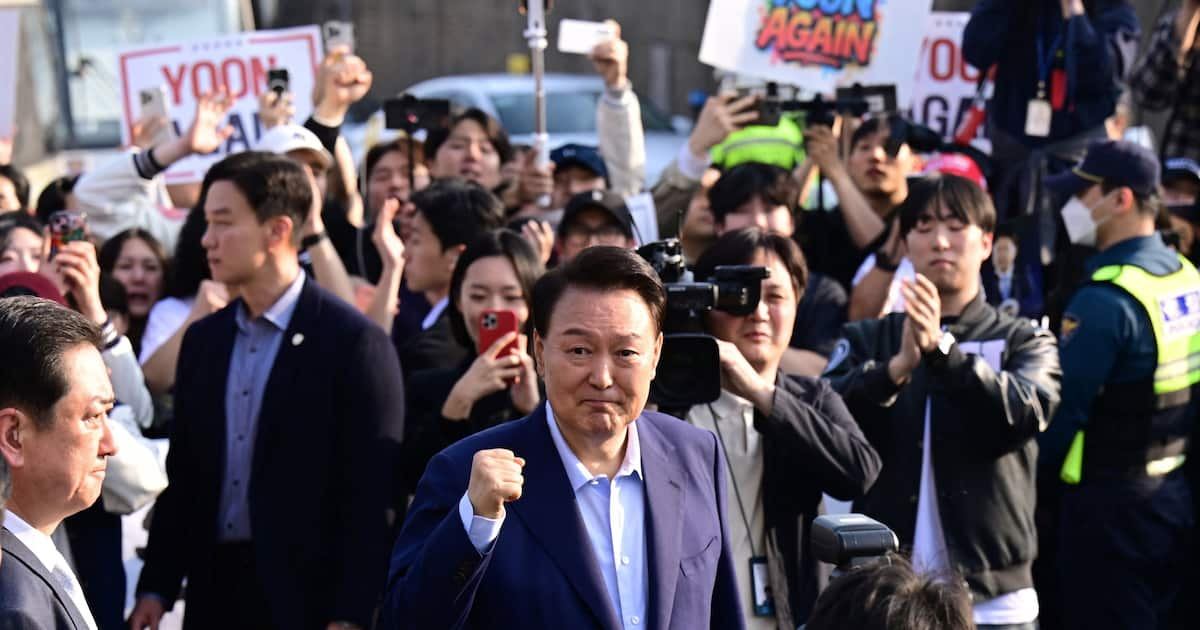Yoon and the Future of South Korean Conservatism: A Shifting Tide?
South Korea's political landscape has undergone a significant shift with the election of President Yoon Suk-yeol. His victory marked a return to conservative rule after five years of liberal governance under Moon Jae-in. But what does this mean for the future of South Korean conservatism? Is it a resurgence of traditional values, or a necessary evolution to remain relevant in a rapidly changing society? This article delves into the complexities of Yoon's presidency and its implications for the conservative movement.
Yoon's Presidency: A Conservative Resurgence?
Yoon's campaign focused heavily on economic liberalization, strengthening national security, and a more assertive stance towards North Korea. These policies resonate with traditional conservative voters, but his approach also signals a departure from some aspects of the past.
Key Policy Initiatives and their Impact:
- Economic Policy: Yoon's emphasis on deregulation and attracting foreign investment represents a clear break from the more interventionist economic policies of the previous administration. However, the effectiveness of these policies in addressing income inequality and youth unemployment remains to be seen. This is a critical aspect observers will be watching closely to determine the long-term impact on South Korean society.
- National Security: A tougher stance on North Korea is a core tenet of Yoon's presidency. This includes strengthening alliances with the US and Japan, a move welcomed by many conservatives but potentially controversial given historical tensions. This strengthened alliance also carries the weight of international relations with China, adding a layer of complexity.
- Social Issues: Yoon's administration has adopted a more cautious approach to social issues compared to some hardline conservative factions. While he has vowed to protect traditional family values, his focus has largely been on economic and security matters, suggesting a pragmatic approach to social policy.
The Evolution of South Korean Conservatism
The conservative movement in South Korea isn't monolithic. It encompasses a range of views, from traditional nationalists to more economically liberal factions. Yoon's presidency represents a potential convergence of these diverse viewpoints, but also a potential point of friction.
Challenges Faced by Yoon's Administration:
- Generational Divide: Younger generations in South Korea are often less aligned with traditional conservative values, posing a challenge for the movement's long-term viability. This calls for a reevaluation of how conservatism addresses the concerns of younger voters.
- Economic Inequality: Addressing the widening gap between rich and poor is crucial for the conservative movement to regain broader support. Yoon's economic policies will be judged on their ability to deliver tangible improvements in the lives of ordinary South Koreans.
- North Korea Policy: Maintaining a balance between national security and diplomatic engagement with North Korea is a delicate task. Yoon's approach will be scrutinized for its effectiveness in achieving lasting peace and stability on the Korean peninsula. This is also intertwined with the international relationships South Korea maintains.
The Future of South Korean Conservatism Under Yoon
Yoon's presidency is a pivotal moment for South Korean conservatism. His success in navigating the complex challenges facing the nation will determine whether the movement can adapt and thrive in the years to come. His ability to address economic concerns, engage with younger voters, and navigate international relations will be key factors in shaping the future of South Korean politics. The coming years will be crucial in determining whether this represents a revitalization of conservatism or a transitional phase.
Further Reading:
This article aims to provide insightful analysis on the topic and welcomes further discussion in the comments below. What are your thoughts on the future of South Korean conservatism under President Yoon?
